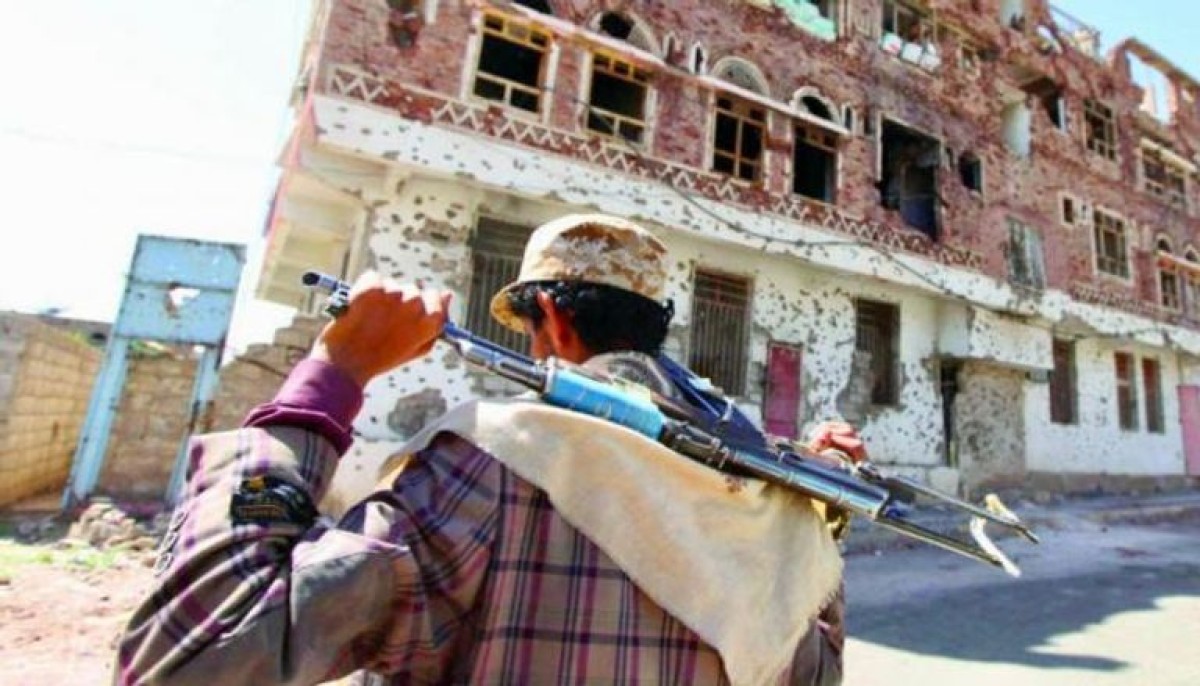Newspaper: The Houthi coup in the court of history.. and Yemeni voices demanding a peace “revolution”.


They are the catastrophe of all times, regardless of context and details, and they are the ones who stripped Yemen of its peace and threw it into the furnace of a coup that took it back light years.
This is the Houthi coup, the affliction and the ominous memory that the militias commemorate on September 21 against the bloodshed of the Yemenis and their ongoing tragedy since 2014. It is the day when voices are raised for a “revolution” of peace and stability that illuminates the darkness of the nine years.
“Nakba” through which the militias celebrate the atrocities that Yemenis have endured for many years, and military parades raising flags dipped in the blood of innocents and the mourning of the bereaved and orphans.
Yemeni political analyst, Dr. Yahya Al-Jubaei, says, “Restoring the state and the republic begins with supporting the various fronts that are resisting the Houthis in the liberated southern governorates as a starting point for eliminating the militias’ dreams of restoring the imamate.”
In an interview with Al-Ain News, he added: “The Houthis, in the name of their false revolution, violated the rights and honor of the Yemenis, committed crimes, blew up homes, and exported terrorism to the liberated southern governorates and to the countries neighboring Yemen. They worked to disturb peace, threaten international interests, and perpetuate class secretions in society.” .
He continued, "The Houthi militias claimed to support rights at the beginning of the Nakba, but they were the first to violate rights, and plundered people's money under the justification of fifths and levies."
He wondered: “What achievements or gains are the Houthis talking about other than bloodshed and threatening neighboring countries, and the state’s slogans and advocacy of rights are nothing but false slogans with which they deceive themselves before others?”
Political analyst Dr. Yahya Al-Jubaei returned to point out that “September 21 is just a play to spread ashes and control the people in northern Yemen by strengthening the culture of domination against others, and mobilizing terrorist organizations to achieve the goals of the militias by intimidating and intimidating others.”
At the conclusion of his conversation with Al-Ain News, he stressed that the Houthis are merely a “mount and a tool” in the hands of others, adding that future generations will come to stand strongly against the Houthi project, will restore the rights of everyone from these militias, and will recognize the sacrifices of the people of this country.
For his part, the Yemeni political analyst, Dr. Abdul-Malik Al-Yousfi, considers that, “When we talk about the Nakba of Yemen on September 21, we are talking about a historical turning point in the moment of Yemeni weakness that occurred internally, as a result of the contradictions and small and stunted projects that created a vacuum from which the Houthi project infiltrated.”
Al-Yousifi told Al-Ain News, “The Houthi was not strong and has not yet been strong, but he took advantage of the contradictions and the existing vacuum, and worked on the existing animosities between the Yemeni forces, especially the tribal and political ones, which is what made the Houthi infiltrate at that moment to form the real Nakba.” .
He considered that "the Houthi Nakba does not only threaten the present, but if it continues as an armed project, it constitutes a threat to the future and stability," noting that "any country whose children aspire to stability, development and the economy will not be able to achieve anything, because it is the first enemy of any development and economic process or even the enemy of life." These are wars and ideological projects of violence.”
Al-Yousifi also pointed out in his speech that “drawing the features of the future cannot be built except by reading the past according to political data that provides real solutions to create stability in Yemen, which now seems to be looming on the horizon, through what the brothers in the Gulf are doing, led by Saudi Arabia, the Emirates and the rest of the countries.” The Gulf is keen on the stability of our country.”
He pointed out that "there is a political path that is crystallizing, but this path must take into account future solutions that lead to real stability in Yemen," considering that the problem that arose after September 21 is "the emergence of an entity that possesses weapons, or in clearer terms, the strengthening of an entity." He owns weapons and controls the state.
The political analyst stressed that "weapons should be monopolized by the state alone, as one of the elements of stability for any country," believing that "the real disaster that occurred on September 21 was the Houthi control over the state's capabilities."
The expert concluded, "Future solutions must start from this standpoint, so that the disaster does not continue and the threat to the country's internal stability, and even to regional stability, does not continue," calling for the necessity of taking these solutions into account during any upcoming political path.